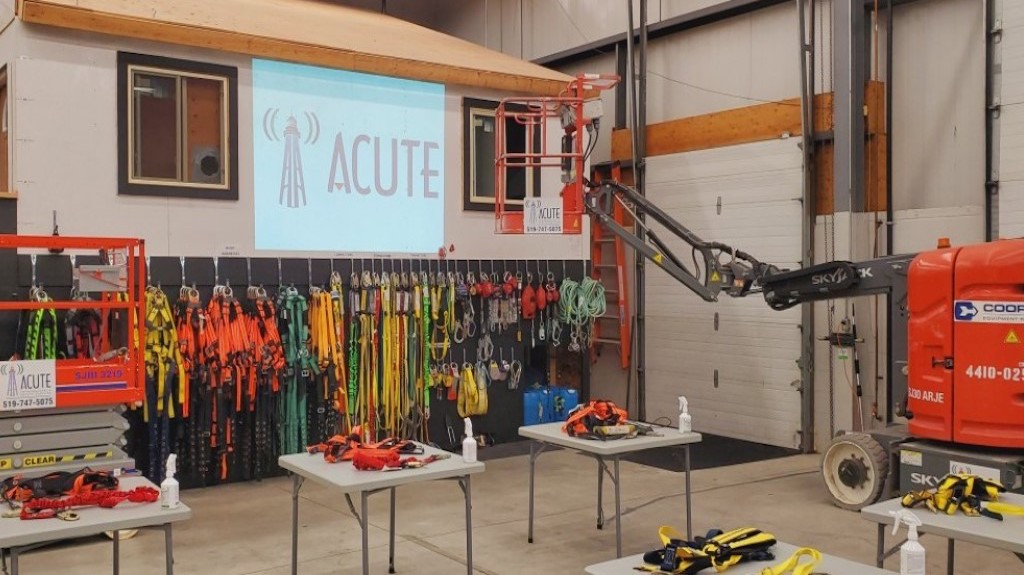Are you a skilled tradesperson looking to take your career to the next level? A well-crafted resume is your first impression on potential employers. In this post, we’ll explore essential resume tips for the trades to help you showcase your skills, experience, and certifications.
Feel free to skip ahead to another section by clicking on the title below.
- Why Is A Resume Important?
- Why Certifications Matter in the Trades
- Basic Resume Tips For The Trades
- How Acute Can Help You Level Up Your Resume
Want to make your resume stand out? Boost your career in the trades by adding training from ACUTE! We offer a wide range of courses including spill response training, work at heights, 40 Hour Hazwoper and confined space entry.
1. Why Is A Resume Important?

Are you looking for resume tips for the trades? Read on for more information!
A resume is a formal document that summarizes your skills, experience, and education. It’s typically used to apply for jobs and is often the first impression you make on a potential employer.
A well-designed resume highlights your qualifications and achievements and demonstrates why you’d be a valued asset for their company.
Therefore in today’s competitive job market, a strong resume is essential for securing your desired position, no matter the industry.
2. Why Certifications Matter in the Trades
The right certifications can significantly increase your chances of landing your dream job in the trades. They not only meet industry requirements but also showcase your initiative and dedication to workplace safety.
Certifications demonstrate your commitment to professional development, expertise, and adherence to industry standards. They can also help you stand out from other applicants and command higher wages.
Compulsory vs. Non-Compulsory Trades in Ontario
In Ontario, trades are categorized into two main groups: compulsory and non-compulsory. Understanding the difference between these two types is crucial for individuals considering a career in the trades.
Compulsory Trades
Compulsory trades are regulated by the government and require specific licensing or certification to practice. This ensures that workers in these trades are qualified and meet industry standards.
Key characteristics of compulsory trades:
- Licensing Requirements: Individuals must obtain a license or certification to work in these trades.
- Apprenticeship Programs: Often involve formal apprenticeship programs to gain practical experience.
- Strict Regulations: Adherence to specific regulations and codes of conduct.
Examples of compulsory trades: Electrician, Plumber, Welder

An electrician is an example of a compulsory trade requiring mandatory certifications.
Non-Compulsory Trades
Non-compulsory trades are not regulated by the government and do not require specific licensing or certification. However, many non-compulsory trades offer certification programs that can enhance your career prospects.
Key characteristics of non-compulsory trades:
- No Licensing Requirement: Individuals can work in these trades without a formal license.
- Voluntary Certifications: Optional certifications can improve job opportunities and earning potential.
- Less Formal Training: Often requires less formal training or apprenticeship programs.
Examples of non-compulsory trades: Cabinet Maker, Cook, General Carpenter
3. Basic Resume Tips For The Trades

Follow these resume tips for the trades to craft a strong resume.
Here are some basic resume tips for the trades to get you started.
Keep it Simple and Clear
- Use a clear and concise format: Avoid fancy fonts and excessive formatting.
- Use bullet points: This makes your resume easy to read and scan.
Highlight Your Skills and Certifications
- Technical Skills: List your specific skills, such as welding, plumbing, electrical work, carpentry, etc.
- Soft Skills: Highlight soft skills like problem-solving, communication, teamwork, and time management.
- Certifications: List all relevant certifications, such as WHMIS and other safety certifications.
Showcase Your Experience
- Reverse Chronological Order: List your most recent experience first.
- Highlight Key Responsibilities: Describe your duties and accomplishments in detail.
- Use Action Verbs: Start each bullet point with strong action verbs like “achieved,” “implemented,” or “led.”
Tailor Your Resume
- Customize Your Resume: Tailor your resume to each job application, highlighting the most relevant skills and experiences.
- Use Keywords: Incorporate keywords from the job description to increase your chances of passing through applicant tracking systems (ATS).
Proofread Carefully
- Check for Errors: Proofread your resume carefully for spelling, grammar, and punctuation errors.
- Seek Feedback: Ask a friend, family member, or career counsellor to review your resume.
Remember: Your resume is your first impression. Make it count! By following these resume tips for the trades, you can create a strong, professional resume that showcases your skills and experience.
4. How Acute Can Help You Level Up Your Resume

Need resume tips for the trades? You can demonstrate your commitment to safety and gain a competitive edge in the job market by getting trained! By investing in safety training, you can unlock new opportunities and achieve your career goals.
ACUTE offers a wide range of safety certifications that can enhance your resume and career prospects. Complete training in areas such as:
- Worker Health and Safety Awareness
- WHMIS 1988 – 2015
- 40 Hour HAZWOPER
- Confined Space Entry Awareness
- Working at Heights
With a vast array of clients in manufacturing, construction, health, academic, and government sectors, our experienced instructors bring the best safety practices from across the spectrum to the classroom.
Ready to learn? Get in touch today!

